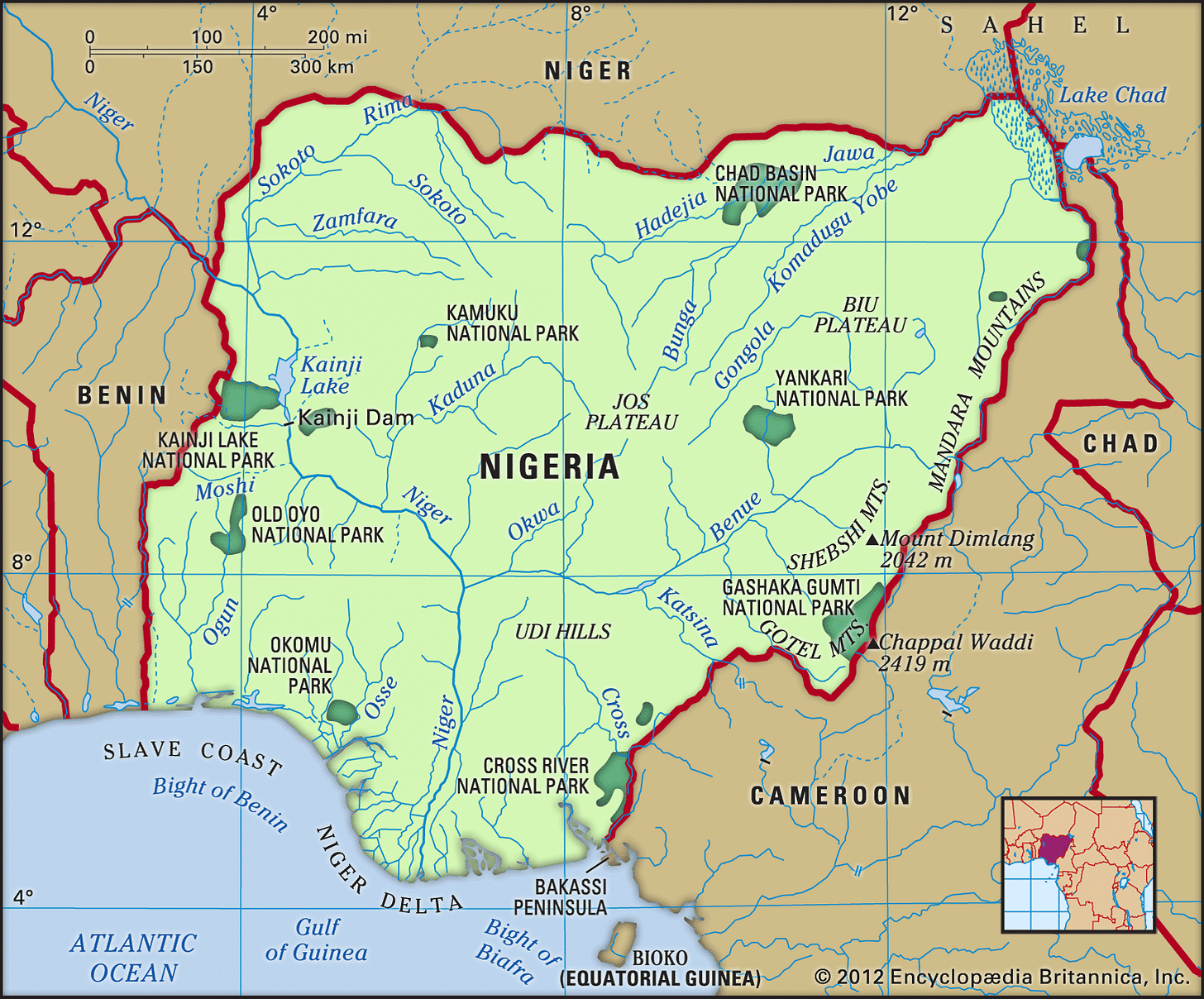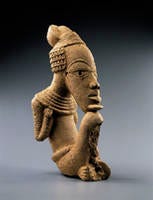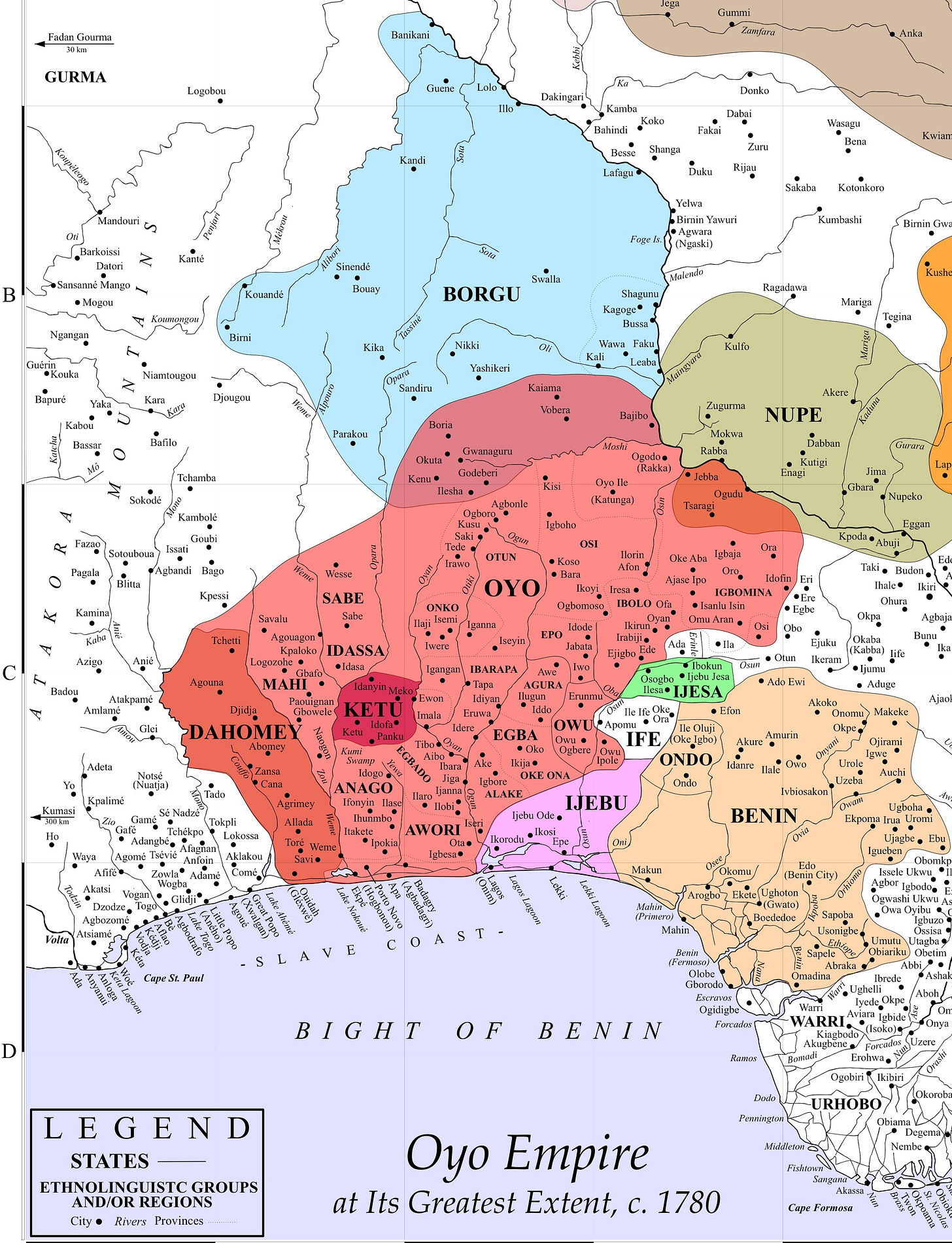This will be a series on Nigeria. Nigeria’s history is too long, too multi-faceted, and too hard to put in one article. This article just focuses on pre-colonial history.
Abubakar Tafawa Balewa, the first federal Prime Minister of Nigeria, made this remark in Colonial Nigeria in 1948: “Since 1914, the British Government has been trying to Make Nigeria into one country, but the Nigerian people themselves are historically different in their backgrounds, in their religious beliefs and customs and do not show themselves any signs of willingness to unite. Nigerian unity is only a British invention.”
Nigeria is a lower-middle country that boasts over 200M people and has 371 ethnic tribes. Nigeria is twice the size of California. The Muslim Hausas, Fulani, and Kanuri dominate the rural, savannah North .Central Nigeria is ethnically diverse (Fula, Berom, Angas people) and full of mountains. South Nigeria is the rainforest and oil belt, where Catholic Igbos are in the South East, Christian Edo people are in Central, “South-South” Nigeria, and Christian/ Muslim Yoruba are in the South West where there’s lots of cocoa.
Brief History Pre- Colonialism
Nigeria was home to numerous empires and kingdoms, too many to list in full. However, they can be roughly categorized by region:
In Central Nigeria, the Nok Kingdom lived near Abuja from 1000 BC to 300 AD. They were skilled ironworkers and created terracotta sculptures.
Hausa-Fulani History
In the North of Nigeria, the Hausa city-states of Kano, Daura, and Gobir emerged around 1000-1804AD , thanks to the trans-Saharan trade where the Hausas traded gold, salt, and slaves with North Africans in exchange for salt, cloths, beads, and metal goods. This trade also brought Islam to the region. In the 15th century, the Songhai Empire conquered some of the Hausa states and forced Hausas to pay tributes. After the Moroccans defeated Songhai, the Hausas enjoyed autonomy. However, by the 1800s, the Fulani people’s Sokoto Caliphate conquered the Hausa states.
In North & Central East Nigeria the Kanem-Bornu empire, which lasted from 700 AD- 1900 AD, transformed from a pagan to an Islamic empire that controlled parts of Southern Libya, most of Chad, South East Niger, East Nigeria, and Northeast Cameroon.
Igbo History
Southeast Nigeria was home to the Nri Kingdom ruled by the Igbo people from the 9th century AD to 19th century AD.
Yoruba & Edo History
In Southwest Nigeria and East Benin had the Yoruba kingdoms of Ife (12th to 15th century), and later the Oyo, Benin, and Ijebu empires which ruled from the 1400s until British colonialism. In 1472, Portugal met the Edo. The Fulani Sokoto Calphate had launched many wars against the Yoruba.
Some empires at different times assisted Europeans with the slave trade to get guns to conquer other African empires and they fought Europeans if the Europeans offered prices that didn’t outweigh the cost of losing local labor to the slave trade. South Nigeria was known as “The Slave Coast”.
Colonialism
In the early 1800s, Britain ended the slave trade for the sake of getting exclusive access to palm oil and rubber in areas like Lagos. In order to stabilize West Africa for trade, which for centuries has been ravaged by tribal wars abetted by Europeans, the British government came in and reek havoc on the internal slave trade in Lagos with a legal mandate from internal kings. Through some political mechanizations, trickery, and power, Britain forced the King of Lagos to become a colony. In the Berlin conference, Britain made up Nigeria’s borders and enlisted the British Royal Niger Company to conquer and forcefully secure 400 treaties from various local rulers to pledge allegiance to the company.
By 1900, the Royal Niger Company sold Nigeria to Britain for £865,000. (Royal Niger Company is now Unilever which owns Ben & Jerry’s, Vaseline, and etc.) Britain split Nigeria to a Northern Protectorate, the Colony of Lagos and Southern Protectorate due to the differences.
The North was unprofitable, it cost more to administer the North than the profits they gained due to fewer natural resources and the north’s resistance to British education. While the South & Lagos made great profits. By 1914, the British man named Fredrick Lugard, decided to merge the two protectorates, even though the South did not want that. Britain wanted indirect rule of Nigeria. So by combining Nigeria, Britain successfully submitted the educated and less populated South under the control of the larger autocratic North. Britain favored putting the Muslim Northern elites in key colonial positions.
Most of the people fighting for independence were Yoruba and Igbos, Northern elites did not mind colonialism since they had stronger interests in colonial rule.
In order to get the North onboard for independence, the South had to agree to maintain the political structure which systemically favored the North.
Gotta mention oil
After 50 years of exploration, the British firms Royal Dutch Shell and British Petroleum discovered oil in Olobiri, Nigeria in the Niger Delta four years before independence. Oil has been a gem and pain for Nigeria which we will discuss next time.
Business in end of Colonial Nigeria
Toward the end of the colonial era, the colonial government tried import substitution policies to spur development. These were the “Aid to pioneer industries act of 1952”, “Income Tax amendment Ordinance of 1952”,Import Duty relief of 1957. Income tax relief of 1958, and Customs Duties of 1958.
Import substitution is making things at home instead of importing them.
These policies permitted the creation of companies in “pioneer industries” and they paid less taxes and government subsides for protection.
These policies had limited impact on colonial Nigeria due to the dominance of foreign entrepreneurs and foreign owned firms in Nigeria. Whatever gains garnered in industry from tax reliefs, subsides, and import duty relief disappeared through the fact that the money basically went back to foreign companies.
For example, if a Nigerian entrepreneur started a business producing clothing. If the businessperson didn't have their own factory, they would need to rent space in a British factory . They would also need to use the UK's sewing machines and other equipment to make their clothing. In exchange, the Nigerian entrepreneur would need to pay rent for the space they were using, as well as pay for the use of the British company's equipment.
As a result, even if the Nigerian entrepreneur was able to make a profit selling their clothing, a portion of that profit would go back to the British that owned the factory and equipment they used. This is because the British company would be charging them rent and fees for the use of their facilities and equipment.
A year before independence, Nigeria had a Central Bank, and the Nigerian pound was the nation’s currency. It was anchored to the British pound at par.
Part of the reason for independence, besides dignity, self-determination, and ending racism, if Nigeria really wanted to encourage local production and development, they would need to focus on building up their own factories and businesses that were owned and run by people in Nigeria. That way, more of the money made would stay in the country and help the local economy grow.
The next post will focus more economy post independence —>










